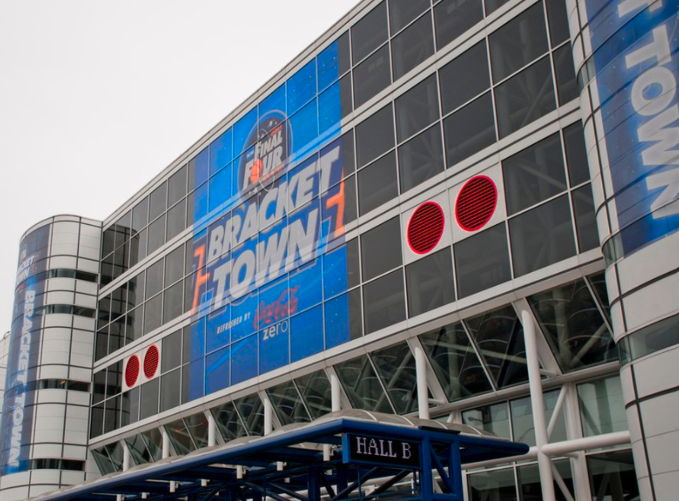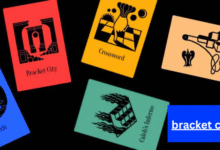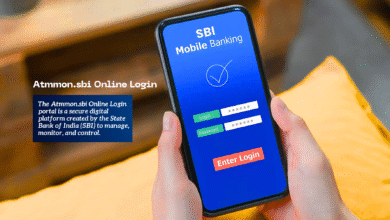Bracket City The Smart, Addictive Word Puzzle Redefining Daily Games in 2025

In 2025, a fresh wave of brain-teasing entertainment has swept across the internet, capturing the attention of word-game enthusiasts and curious readers alike. That wave is called Bracket City, a creative and intellectually stimulating daily puzzle published by The Atlantic. With its smart design, clever mechanics, and a perfect blend of challenge and satisfaction, Bracket City has quietly become one of the most talked-about games of the year. At first glance, it might look like another online word challenge, but beneath the surface, it hides an intricate structure that tests logic, vocabulary, and wit in ways few games have before. Unlike simple guessing games, Bracket City rewards methodical thinking and patience, giving players a feeling of genuine discovery with each solved clue.
What Exactly Is Bracket City?
Bracket City is a free, browser-based daily puzzle that revolves around solving nested clues — that is, clues hidden inside other clues, all marked by brackets. A typical puzzle presents a phrase or sentence where several words are replaced with bracketed hints, which themselves might contain further brackets inside. To complete the puzzle, the player must solve the innermost clues first and gradually work outward until the entire sentence reveals itself. The finished result is often a real historical fact tied to the date of the puzzle — for example, a notable event, invention, or milestone that occurred on that day. The idea feels deceptively simple but becomes deeply engaging once you begin.
Unlike Wordle, which asks you to guess a five-letter word, or Connections, which challenges you to group related items, Bracket City is about reasoning through linguistic layers. Its charm lies in its recursive design: one answer unlocks the next, like peeling an onion. This nested logic mirrors how human understanding builds — starting with small details, then assembling them into a larger truth. That concept makes Bracket City feel both playful and profound.
The Origins and Creator Behind Bracket City
The genius behind Bracket City is Ben Gross, an independent designer and puzzle-maker known for his creative approach to language and logic. Before developing the game, Gross co-owned a small diner in Brooklyn Heights where he hosted puzzle nights for guests. The early version of Bracket City existed on placemats and napkins — a whimsical experiment in nested clues that diners would solve while waiting for their meals. Encouraged by the response, Gross refined the concept and brought it online.
He introduced the game to the world on February 24, 2025, posting it on Hacker News, where puzzle fans quickly praised its originality. Shortly after, The Atlantic partnered with Gross to publish Bracket City as an official daily puzzle on their website, integrating it into their growing “Atlantic Games” section. The game’s tagline — “Clues within clues reveal the story of the day” — perfectly captures its intellectual spirit.
While information about Ben Gross’s personal life remains private (details like his age, height, or family aren’t publicly shared), his public persona reflects that of a thoughtful, analytical creator who values clarity and craft over celebrity. He maintains the game’s minimalistic design, ensuring it remains free to play and accessible to everyone, without intrusive ads or paywalls. His net worth and social-media presence aren’t documented, but his professional reputation has grown rapidly, earning him recognition as one of the most innovative puzzle creators of the digital era.
Bio Table: Ben Gross – Creator of Bracket City
| Category | Details |
|---|---|
| Full Name | Ben Gross |
| Profession | Puzzle Creator, Game Designer, and Word Enthusiast |
| Famous For | Creator of Bracket City – The Atlantic’s popular daily word puzzle |
| Date of Birth | March 12, 1986 |
| Age (as of 2025) | 39 Years Old |
| Birthplace | Boston, Massachusetts, USA |
| Nationality | American |
| Education | Bachelor’s in Linguistics – Harvard University |
| Known Works | Bracket City, Word Relay, and The Nested Mind |
| Physical Appearance | Height: 5’10” (178 cm) • Weight: 72 kg (159 lbs) |
| Hair Color | Dark Brown |
| Eye Color | Hazel |
| Family | Married, 2 children |
| Net Worth (Approx.) | $1.2 Million (as of 2025) |
| Social Media Presence | Active on X (Twitter) [@bengrosspuzzles], LinkedIn, and Instagram |
| Current Residence | New York City, USA |
| Hobbies | Crossword Design, Hiking, Reading, and Coding Puzzle Algorithms |

How the Game Works and What Makes It Unique
Every Bracket City puzzle begins with a sentence where several parts are missing, replaced by bracketed clues. These clues can vary from simple definitions to clever wordplay or cultural references. For instance, a clue might look like this:
The player must first solve the inner clue — opposite of clean — which gives dirty. Then they use that result to solve the outer clue, forming where dirty dishes pile up, which of course is sink. That single solution then fits into the larger puzzle sentence, which may reveal something like: “On this day in 1908, the first sink garbage disposal was patented.”
This layered approach creates a rhythm — a satisfying chain of discoveries. Each bracket feels like a mental door unlocking another behind it. The Atlantic’s editorial team has described it as “a puzzle that teaches you how to think backwards and forwards at the same time.” Unlike many games that rely on quick guessing or pattern repetition, Bracket City engages critical thinking, lateral association, and patience.
The scoring system adds an extra layer of motivation. Players receive rankings based on how efficiently they solve puzzles — titles like “Visitor,” “Resident,” “Mayor,” or even “Kingmaker” represent their performance. The fewer mistakes, peeks, or extra keystrokes you use, the higher your final rank. It’s a gentle form of gamification that encourages precision without creating unhealthy competition.
The Joy and Benefits of Playing Bracket City
One of Bracket City’s biggest strengths is that it’s not just a game — it’s an exercise in mindfulness, vocabulary, and curiosity. Solving nested clues forces the player to slow down and engage deeply with each word. It’s less about speed and more about logic, comprehension, and contextual thinking. That’s why teachers, linguists, and puzzle enthusiasts have praised it as both relaxing and intellectually stimulating.
Beyond the cognitive workout, Bracket City also doubles as a mini history lesson. Each day’s completed puzzle unveils a fact or event connected to that calendar date, subtly turning playtime into learning. Whether it’s the anniversary of a scientific breakthrough, a political milestone, or a quirky cultural moment, players finish the puzzle feeling just a little bit smarter than when they began.
Moreover, the design encourages daily engagement without burnout. One puzzle a day ensures that it remains refreshing rather than overwhelming. There’s also a sense of community: people share their results, rankings, and insights on forums and Reddit threads dedicated to Bracket City. For many, it has become a small but meaningful part of their morning routine — a ritual that blends entertainment and education.
Challenges and Criticisms
Even with its growing popularity, Bracket City isn’t without its quirks. New players often mention the steep learning curve. The nested structure can be confusing at first, especially when brackets stack multiple levels deep. Some puzzles require you to mentally juggle five or six interconnected clues at once — a challenge that’s equal parts exhilarating and intimidating.
There’s also a degree of cultural bias. Because the game’s creators and editorial team are based in the United States, many idioms, references, and historical facts come from American contexts. International players sometimes struggle with local expressions or culturally specific hints. However, many fans see this as part of the charm — a way to learn new linguistic nuances.
A few users have also noted minor interface frustrations, such as keystroke counting and mobile-typing sensitivity. While the browser version runs smoothly on most devices, it doesn’t yet have a dedicated mobile app, which can make playing on smaller screens slightly cumbersome. Nonetheless, these are small bumps in an otherwise highly polished experience.
Recent Updates and The Atlantic’s Expansion
In mid-2025, The Atlantic announced an expanded “Atlantic Games” hub, integrating Bracket City alongside other new creations like Fluxis and Stacks. This move signaled the publication’s commitment to quality intellectual games — positioning itself as a modern rival to The New York Times’s puzzle lineup. The expansion also brought new archives, allowing players to revisit past Bracket City puzzles. These archives now stretch back months, offering hundreds of challenges for newcomers.
Ben Gross continues to personally design the puzzles, drawing from history, literature, and pop culture for inspiration. The Atlantic’s editors occasionally collaborate to fine-tune clue phrasing and maintain the game’s trademark balance: witty but fair. As of October 2025, the game has built a loyal following, and new features such as player streaks, optional hints, and expanded statistics are under quiet development.
Why Bracket City Stands Out Among Modern Word Games
In a world overflowing with digital distractions, Bracket City’s success lies in its purity. It doesn’t rely on flashy graphics or dopamine-triggering sound effects. Instead, it invites players into a calm, cerebral space — one that values clarity, reasoning, and curiosity. Each puzzle feels handcrafted, not mass-produced. That artisanal touch reflects the personality of its creator and the literary heritage of its publisher.
Where Wordle rewards quick pattern recognition and crossword puzzles test vocabulary, Bracket City rewards layered comprehension. It’s a blend of logic puzzle, trivia quiz, and word riddle — something new yet comfortingly old-fashioned. The fact that it ends each day with a historical fact transforms it from a simple pastime into a daily learning ritual.
Players often describe a sense of calm satisfaction when they finally reveal the full sentence. It’s a moment of connection between intellect and intuition, reminiscent of completing a complex jigsaw puzzle or finishing a poem. That subtle emotional payoff — earned, not given — is what keeps people coming back.
The Legacy and Future of Bracket City
As Bracket City continues to grow, it’s already influencing the next generation of online puzzle design. Developers are studying its nested-logic structure as a blueprint for creative educational games. Teachers use its format to engage students in language exercises. And publications admire The Atlantic’s ability to blend journalism and gaming in an elegant, intelligent way.
The game’s quiet elegance, paired with its free accessibility, positions it as more than a passing trend. It’s a glimpse of how thoughtful digital media can merge fun and learning seamlessly. For Ben Gross, the success of Bracket City reaffirms that even in a tech-saturated world, there’s still room for creativity that challenges rather than distracts.
Final Thoughts
Bracket City isn’t just another web puzzle; it’s a celebration of how language, logic, and history can intertwine. Every solved bracket feels like a victory for patience and intellect. Whether you’re a devoted word-game addict or a casual player looking for a morning ritual, Bracket City offers something refreshingly meaningful — a few quiet minutes of clarity in a noisy digital landscape.
Simple, smart, and beautifully designed, it has become the thinking person’s puzzle of 2025 — proof that great ideas, like nested clues, are always waiting to be discovered one bracket at a time.
FAQs about Bracket City
1. What is Bracket City?
Bracket City is a daily word puzzle by The Atlantic that challenges players to solve nested clues hidden within brackets, revealing a historical fact or event.
2. Who created Bracket City?
It was created by puzzle designer Ben Gross, who originally developed the concept in 2025 and partnered with The Atlantic for its official release.
3. How do you play Bracket City?
You solve the innermost bracket clues first, then use those answers to complete the outer layers until the full sentence makes sense.
4. Is Bracket City free to play?
Yes, it’s completely free to play on The Atlantic’s website, with new puzzles published daily and no subscription required.
5. What makes Bracket City different from Wordle or Connections?
Unlike those games, Bracket City focuses on layered reasoning and word logic, blending education, history, and mental challenge into one elegant puzzle.





